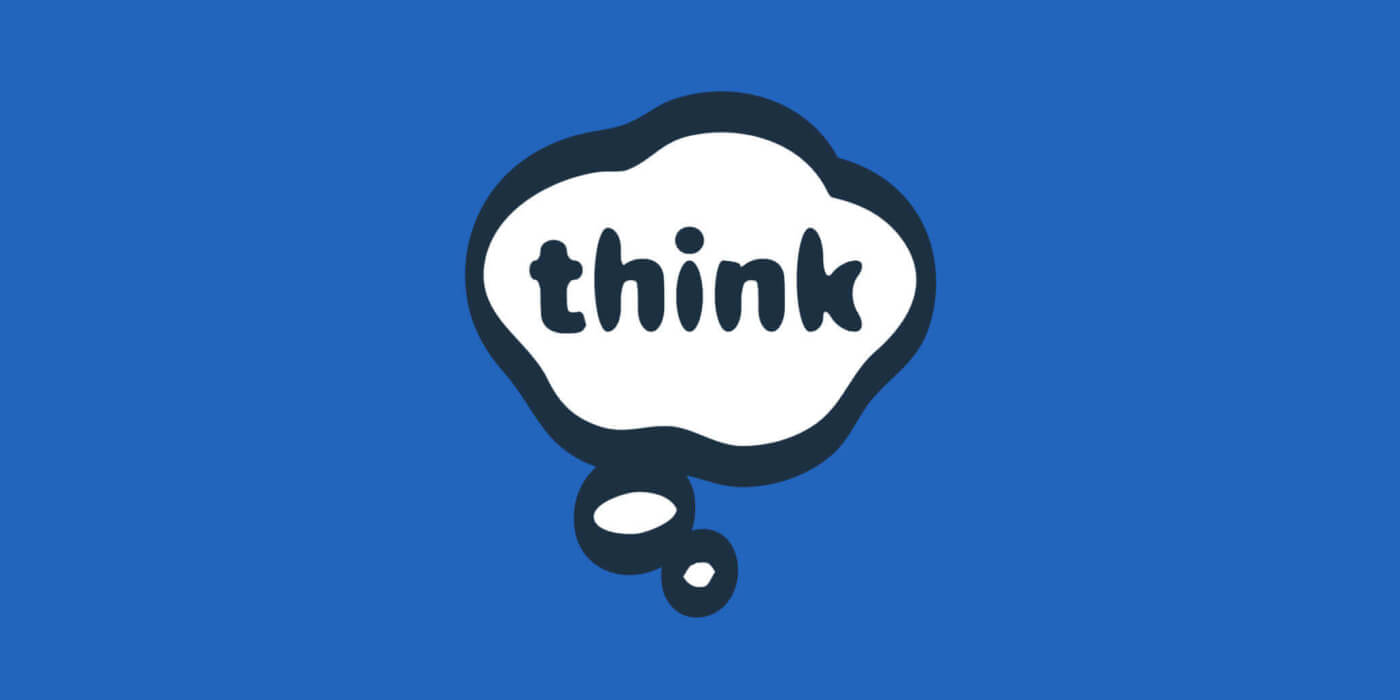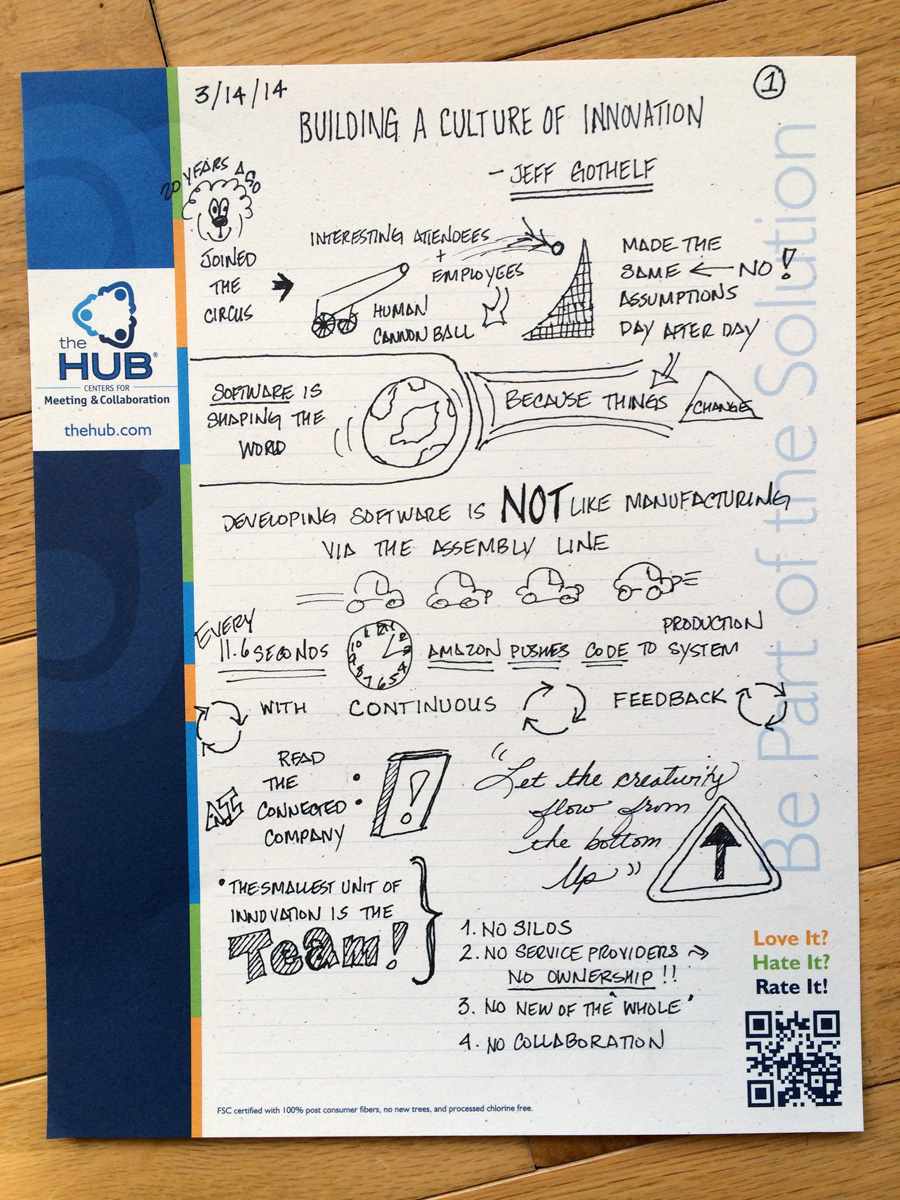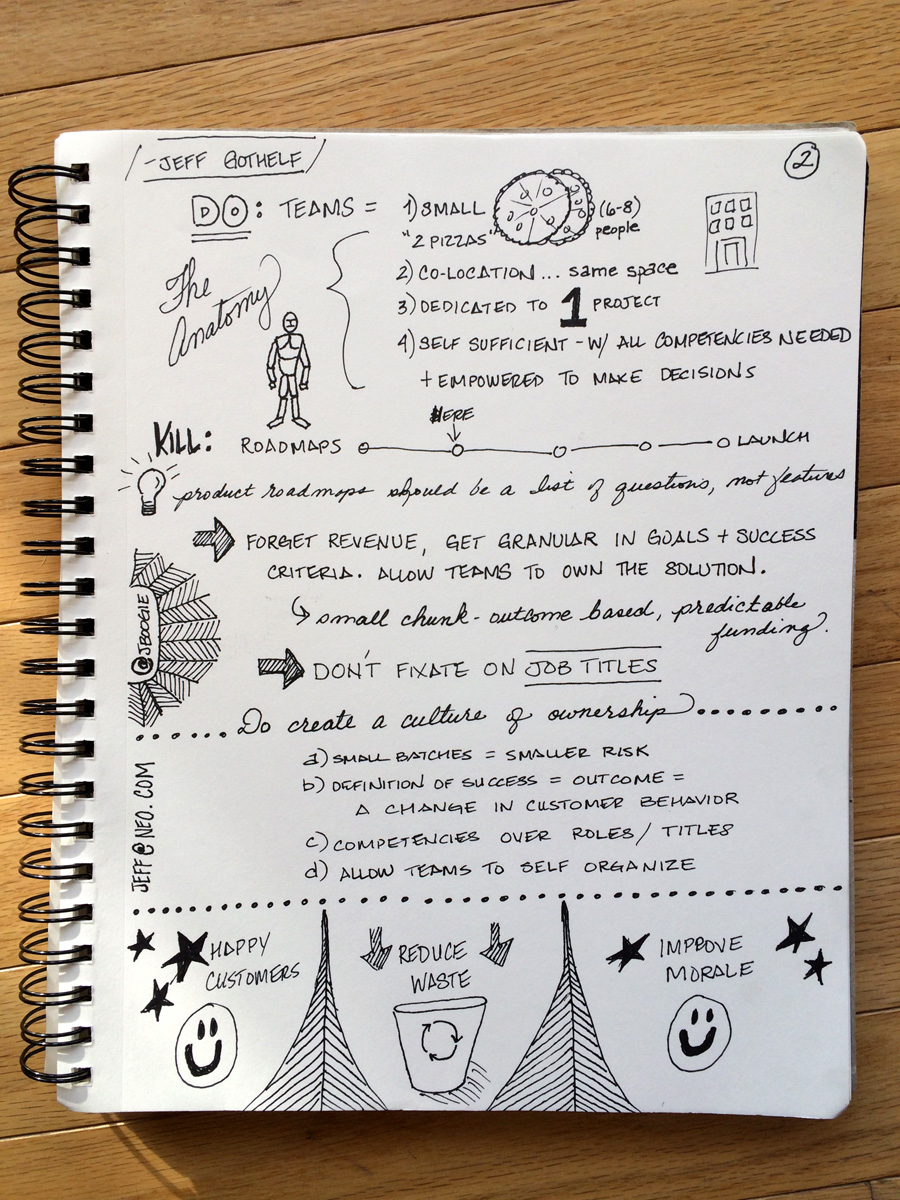Breakfast with Jeff Gothelf: Successful In-House Innovation Teams

We are 50+ people and almost 7 years old. We are nimble and powerful. We sit within discipline groups that have soft borders, co-located in one open space, and we work like we own it! We are Think Brownstone and we follow a lot of what Jeff Gothelf, author of Lean UX, evangelized at a PhillyCHI talk last Friday.
After listening to Jeff talk about building successful innovative teams, and reading Fast Company’s article on Pixar’s Braintrust, I recognized some common themes.
The world changes fast, but software development (should) move even faster. My favorite tidbit to noodle over was Jeff’s observation that Amazon pushes code to production every 11.6 seconds, making use of the Lean benefit of continuous feedback rather than assuming what their customers want, or believing that the same things will happen day after day.
How do we push the envelope even more? Use small teams that are:
- No larger than you can feed with two pizzas
- Co-located in the same space
- Dedicated to one project (I can tell you this is a hard one in a consulting-based business like Think Brownstone)
- Tasked to solve business problems rather than following product managers like sheep down a time-bound product roadmap that will never be followed anyway
Don’t fixate on job titles. Focus on competencies needed to make the team self-sufficient. And this is really cool: allow the teams to self organize.
Kill the silos. Ask these self-sufficient teams, with all of their needed competencies and empowerment, to make their own decisions to solve common, overarching business problems. This process results in the ever important “ownership” of deliverables and solutions.
Similar to Jeff’s ideas, Pixar says they “try to create an environment… where everyone has a vested interest in one another’s success. We give our film makers both freedom and responsibility.”
I really liked Jeff’s suggestion on chunking out projects into bite-sized, outcome-based goals. By creating small deliverables (problems to solve), you can reduce risk. Define the deliverables based on a desired change in customer behavior, rather than revenue or time based goals.
Mix it all together and you should get: happier customers, improved morale, less waste, and greater efficiencies.
Props to PhillyCHI for organizing the breakfast and 50onRed for hosting everybody.





